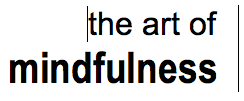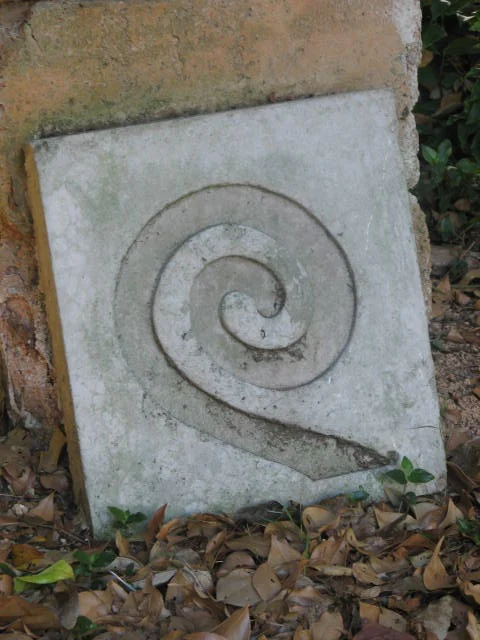When the mind's up against a wall
/This article is about working with the fearful mind, especially when it reacts to severe endings, the kind that don't appear to contain the seeds of any new beginning. The dark night endings. The times when emotional pain or distress is visceral, and it's impossible to imagine things will ever feel better.
Events that trigger times like this are varied. The huge events, like the loss of someone you love, the end of a relationship and all it promised, perceived betrayal, the loss of health or physical capacity, the loss of a role and the sense of purpose or status it gave us, solitary confinement or imprisonment … And for some, apparently small things trigger a similar kind of fear, anxiety or depression. We can become anxious about isolation, anxious about feeling anxious. We can fall in on ourselves; thinking we are separate, and that we only have ourselves to fall back on. Then it seems that the human mind can go completely nutty, and states of intense fear and neurosis arise.
Usual individual consciousness is not just prone to fear – it is fear! That fear is usually covered over because props are in place, like a relationship, a role, income, material comforts, entertainment etc. The fear is underground when things are going well, but it’s there, just the same. It’s there in the niggling we feel because we have things, but hell, we might lose them, and every now and then when there are reminders that this physical realm is an uncertain and potentially terrifying ride. Terrifying, because we’re born into a human body and we feel separate (me, separate from you), and we’re messing up our planet, and we’re going to die. Separate consciousness, the separation from a realised relationship with the Spirit of Life, is the basis of fear, and any attempts to change things or employ techniques to feel better from within the paradigm of separation from Life, are coming from the same paradigm that led to the suffering in the first place.
I have found it a sobering thing to realise that the mind which operates when I feel happy conditionally (e.g. times when conditions are going well, I feel loved, that I’m successful, popular, belong, contribute etc) is that very same mind, only this time it’s spinning me light, not shadow thoughts! Reminders of how things are going well, possibilities, stories of hopefulness. Occasionally small thoughts like: I hope I can stay in this frame of mind; I hope these conditions stay in place, I hope he keeps loving me, might surface. The positive mind and the tortured mind are coming from the same “type” of consciousness. And so to approach pain with positive affirmations and other techniques, while of course being really useful to help someone become more functional, is nothing to do with a change of consciousness. A change of consciousnes, from fear-based to Love-based, is the work of spiritual practice, and a whole other affair, a whole other study.
Mindfulness and other techniques of attention constitute a wonderful preparation for spiritual practice, which is the gradual turning of awareness from the separate self, to Love, or God, or the force of Life - or whatever anyone wants to call it. Some mastery of the mind is a prerequisite for spiritual practice, which requires a lot of attention.
I have found that times of suffering are the times I’m most propelled into practising a conscious discipline of attention of the mind. A sort of rebellion can arise in me - I simply can’t afford to cave in and give up on my Life! In times like this I see the total neurosis of the human ‘ego’ mind. I see its insanity, its repetitious hell-bent insistence on working things out, coming to some solution, repeating old stories, and fuelling stress by what it chooses to head towards. I see how the body is much wiser than the mind, which frankly, can be a complete idiot. And yet, the body, being so sweetly faithful to the mind it is married to, will suffer accordingly.
Being in the sort of pain I’ve described highlights all of my habitual strategies of avoiding the present moment. The paradox is that being in the present moment is the only thing that will begin to master the mind’s habitual patterns (as opposed to the mind being one’s master). Attending to each breath, not indulging the agonizing over why or dreading a future in which the ‘problem’ has not resolved, but instead, reminding myself to simply soften, to simply be with this fearful aspect of myself that is freaking out.
During times when I have felt extreme fear, one of the only techniques I could stay with, without sliding away into avoidance, was the Buddhist practice of Tonglen. One breathes the distress - the difficult sensations, the fear, the panic - right into the heart, and then breathes out the quality of peace, calm or loving – with the intention of blessing and benefiting others.
I sometimes noticed, though not always, that the fight with the distressing feelings eased a bit. Some softening of the panic about ruining one’s health by being so stressed and fearful. Less trying so hard to create something positive to replace the fear and anguish. Simply staying present to what was, inviting it in to one’s heart, not with a view to it staying, but with the intention of witnessing it as a kind and steady host.
Breathing out love. Over and over again, though each breath may be a sort of work, the mind constantly flicking to a means of escape, the wanting of things to be different, the desire to feel calm and well. Breathing in the stress, breathing out love. Breathing in the fear, breathing out calm. Breathing in the avoidance, breathing out peace to all who are suffering. Sometimes I notice the practice simply becomes breathing in and receiving the great gift of Life, in whatever state I’m in, and breathing out, surrendering myself, however I am, back into Life.
I have noticed, when I have practised this, that I become aware of the hundreds, thousands, millions of others who may also be suffering … so the practice becomes a gift with the intention of love for others. A self-gift too, because when a person stops fighting fear and making it wrong, and allows and opens instead to the sensations it brings, fear also softens its grip.
The very things we try to get rid of soften in the face of kindness, soften in the face of love.

